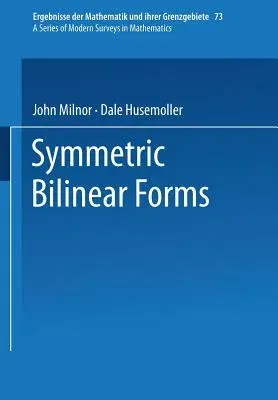The theory cf quadratic forms and the intimately related theory of sym-
metrie bilinear forms have a lang and rich his tory, highlighted by the
work of Legendre, Gauss, Minkowski, and Hasse. (Compare [Dickson] and
[Bourbaki, 24, p. 185].) Our exposition will concentrate on the rela-
tively recent developments which begin with and are inspired by Witt's
1937 paper "Theorie der quadratischen Formen in beliebigen Körpern." We
will be particularly interested in the work of A. Pfister and M.
Knebusch. However, some older material will be described, particularly
in Chapter II. The presentation is based on lectures by Milnor at the
Institute for Ad- vanced Study, and at Haverford College under the
Phillips Lecture Pro- gram, during the Fall of 1970, as weIl as Iectures
at Princeton University il1 1966. We want to thank J. Cunningham, M.
Knebusch, M. Kneser, A. Rosenberg, W. Scharlau and J.-P. Serre for
helpful suggestions and corrections. Prerequisites. The reader should be
familiar with the rudiments of algebra., incJuding for example the
concept of tensor product for mo- dules over a commutative ring. A few
individual sections will require quite a bit more. The logical
relationship between the various chapters can be roughly described by
the diagram below. There are also five appendices, largely
self-contained, which treat special topics. I. Arbitrary commutative
rings I H. The ring of V. Miscellaneous IIl. Fields integers examples
IV. Dedekind domains Contents Chapter r. Basie Coneepts . . . . . . . .


